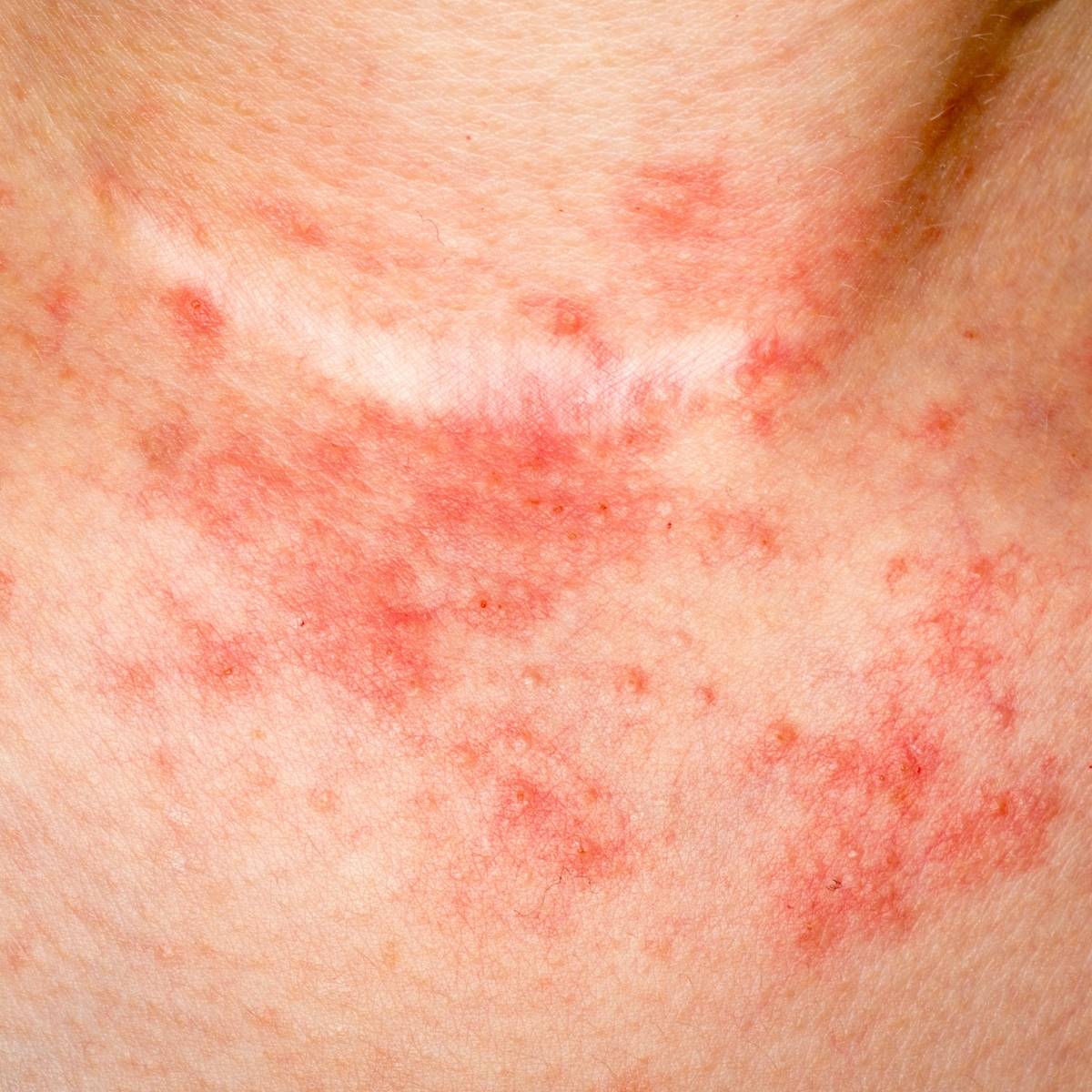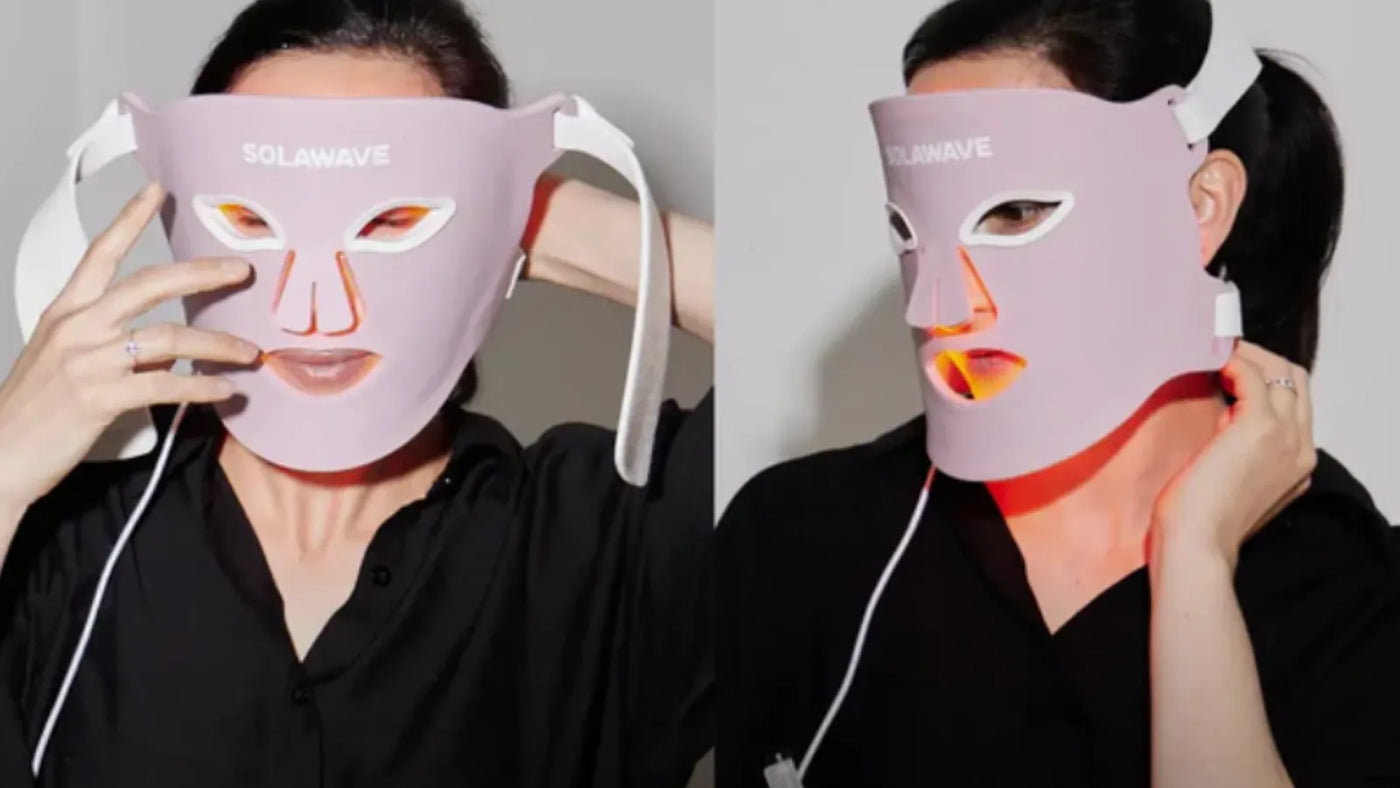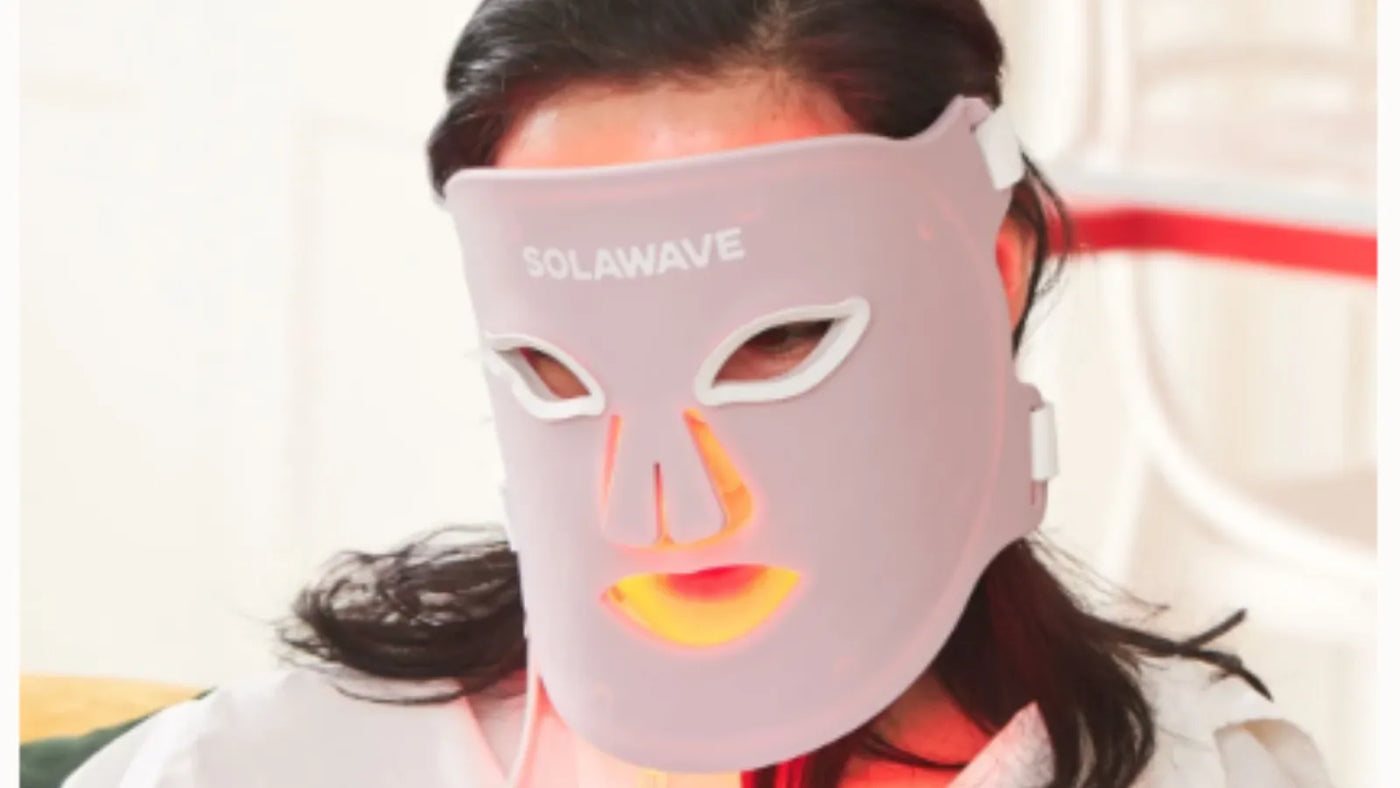

What Is Eczema?
Eczema is a chronic skin condition that causes dry, itchy, and inflamed patches on your skin. While it’s common and affects people of all ages, many still struggle to understand what triggers eczema and how to manage it effectively.
What Is Eczema?
Eczema is a term used to describe a group of conditions that cause the skin to become inflamed, itchy, and irritated. The most common form is atopic dermatitis, but there are several other types, each with its own triggers and symptoms. Eczema is not contagious, but it can be persistent and sometimes severe, affecting your daily comfort and confidence.
When you have eczema, your skin’s protective barrier doesn’t work as well as it should. This means your skin loses moisture more easily and becomes more vulnerable to irritants, allergens, and infections. As a result, you may notice patches of dry, red, and itchy skin that can sometimes crack, ooze, or bleed. These flare-ups can appear anywhere on your body, but they’re most common on the hands, face, neck, elbows, and knees.
Common Types of Eczema
-
Atopic Dermatitis: The most common type, often starting in childhood. It’s linked to allergies and asthma and tends to run in families.
-
Contact Dermatitis: Caused by direct contact with irritants or allergens, such as soaps, detergents, or certain metals.
-
Dyshidrotic Eczema: Characterized by small, itchy blisters on the hands and feet.
-
Nummular Eczema: Appears as round, coin-shaped spots on the skin, often after an injury or insect bite.
-
Seborrheic Dermatitis: Affects areas with many oil glands, like the scalp and face, causing red, scaly patches.
-
Stasis Dermatitis: Occurs on the lower legs due to poor circulation, leading to swelling and skin changes.
What Causes Eczema?
Eczema develops due to a combination of genetic and environmental factors. If you have a family history of eczema, asthma, or allergies, you’re more likely to develop the condition. However, even without a genetic link, certain environmental triggers can set off or worsen eczema symptoms.
Genetic and Environmental Factors
Your genes play a significant role in how your skin functions. People with eczema often have a mutation in the gene responsible for producing filaggrin, a protein that helps maintain the skin’s barrier. Without enough filaggrin, your skin loses moisture more easily and becomes more sensitive to irritants and allergens.
Environmental factors also play a major role. Everyday exposures—like harsh soaps, detergents, fragrances, and even rough fabrics—can irritate your skin and trigger flare-ups. Changes in weather, especially cold, dry air or hot, humid conditions, can also make eczema worse.
Common Triggers
-
Allergens: Pollen, pet dander, dust mites, and certain foods can trigger eczema in some people.
-
Irritants: Soaps, detergents, shampoos, disinfectants, and even some skincare products.
-
Stress: Emotional stress can worsen eczema symptoms, likely due to its impact on your immune system.
-
Weather: Sudden changes in temperature or humidity, as well as sweating, can lead to flare-ups.
-
Infections: Bacterial, viral, or fungal infections can aggravate eczema or make it harder to control.
The Role of the Immune System
Eczema is considered an immune-mediated condition, meaning your immune system overreacts to certain triggers, causing inflammation in the skin. This inflammation leads to the redness, swelling, and itching that are hallmarks of eczema. In some cases, the immune response is so strong that it damages the skin’s barrier further, creating a cycle of flare-ups and irritation.
What Are the Symptoms of Eczema?
Eczema symptoms can vary widely from person to person, and even from one flare-up to the next. However, there are some common signs you can look out for:
-
Itchiness: This is often the most noticeable and bothersome symptom. The urge to scratch can be intense, leading to further irritation and even infection.
-
Redness and Inflammation: Affected areas of skin may appear red, swollen, and warm to the touch.
-
Dryness and Flaking: The skin often becomes very dry, rough, and may peel or flake.
-
Swelling: Some people experience swelling in the affected areas, especially during severe flare-ups.
-
Blisters and Oozing: In more severe cases, small blisters may form and leak fluid, eventually crusting over.
-
Thickened Skin: Chronic scratching and rubbing can cause the skin to thicken and become leathery, a process known as lichenification.
How Symptoms Vary by Age and Type
-
Infants: Eczema often appears on the face, scalp, and outer arms and legs. The skin may look red, weepy, and crusty.
-
Children: Symptoms usually show up in the creases of the elbows, knees, wrists, and ankles. The skin may become thickened and develop a leathery texture.
-
Adults: Eczema can appear anywhere but is common on the hands, eyelids, and around the neck. The skin may be very dry, scaly, and prone to infections.
Different types of eczema can also have unique symptoms. For example, dyshidrotic eczema causes small, intensely itchy blisters on the hands and feet, while nummular eczema creates round, coin-shaped patches that may ooze or become crusty.
How Is Eczema Diagnosed?
Diagnosing eczema usually begins with a visit to your healthcare provider, who will carefully evaluate your symptoms and medical history. There’s no single test for eczema, so diagnosis is based on a combination of your reported symptoms, a physical examination, and sometimes additional tests to rule out other conditions.
Your healthcare provider will start by asking about your symptoms—when they began, how often they occur, and what seems to trigger or worsen them. You’ll also be asked about your personal and family history of allergies, asthma, or eczema, since these conditions often run together.
During the physical exam, your provider will closely inspect the affected areas of your skin. They’ll look for classic signs of eczema, such as redness, dryness, swelling, and thickened skin. Sometimes, they may ask about your daily routines, including skincare products, detergents, and exposure to potential irritants.
Common Diagnostic Methods
-
Physical Exam: The primary method for diagnosing eczema. Your provider will look for visible signs and patterns on your skin.
-
Medical History: Understanding your health background, family history, and lifestyle helps identify possible triggers and related conditions.
-
Allergy Testing: If allergies are suspected as a trigger, your provider may recommend patch testing or skin prick tests to identify specific allergens.
-
Skin Biopsy: Rarely, a small sample of skin may be taken to rule out other skin conditions that can mimic eczema, such as psoriasis or fungal infections.
Proven Ways to Treat and Manage Eczema
Managing eczema is about more than just treating flare-ups—it’s about maintaining healthy skin, preventing future outbreaks, and improving your overall quality of life. While there’s no cure for eczema, a combination of medical treatments and lifestyle changes can help you control symptoms and reduce discomfort.
The main goals of eczema treatment are to relieve itching and discomfort, heal the skin and prevent further damage, reduce inflammation and swelling, and prevent future flare-ups by identifying and avoiding triggers.
Topical Treatments
Topical treatments are applied directly to the skin and are often the first line of defense against eczema symptoms.
-
Moisturizers (Emollients): Keeping your skin well-hydrated is essential. Use fragrance-free, thick creams or ointments several times a day, especially after bathing. Moisturizers help restore the skin barrier, reduce dryness, and protect against irritants.
-
Topical Corticosteroids: These anti-inflammatory creams or ointments are used to calm flare-ups. They come in various strengths, so your provider will recommend the right one for your symptoms. Use them as directed to avoid side effects like thinning skin.
-
Topical Calcineurin Inhibitors: Medications such as tacrolimus (Protopic) and pimecrolimus (Elidel) help reduce inflammation without the side effects of steroids. They’re often used for sensitive areas like the face and eyelids or for long-term management.
Oral Medications and Advanced Therapies
For moderate to severe eczema that doesn’t respond to topical treatments, your provider may recommend oral medications or advanced therapies.
-
Antihistamines: These medications can help reduce itching, especially at night. While they don’t treat the underlying inflammation, they can make you more comfortable and help you sleep.
-
Immunosuppressants: Drugs like cyclosporine, methotrexate, or mycophenolate mofetil suppress the immune system’s overactivity and are reserved for severe cases. They require close monitoring due to potential side effects.
-
Biologics: Dupilumab (Dupixent) is an injectable medication that targets specific pathways in the immune system. It’s approved for moderate to severe atopic dermatitis and can significantly reduce symptoms for many people.
Light Therapy (Phototherapy)
Phototherapy uses controlled exposure to ultraviolet (UV) light to reduce inflammation and improve skin health. It’s typically recommended for people with widespread or stubborn eczema that hasn’t responded to other treatments. Phototherapy is performed under medical supervision to minimize the risk of skin damage.
Tips for Living with Eczema
Daily Skincare Routines
Establishing a consistent skincare routine is essential for managing eczema. Start by moisturizing your skin at least twice a day, especially after bathing, to lock in moisture and strengthen your skin’s natural barrier. Use thick creams or ointments rather than lotions, as they provide better protection against dryness. Always choose fragrance-free and hypoallergenic products to minimize irritation. When cleansing, opt for mild, soap-free cleansers and avoid hot water, which can strip your skin of essential oils.
Managing Stress and Emotional Health
Stress is a well-known trigger for eczema flare-ups, so finding effective ways to manage stress can have a direct impact on your skin health. Incorporate stress-reducing activities into your daily routine, such as deep breathing exercises, meditation, yoga, or spending time outdoors. Don’t hesitate to seek support from friends, family, or a mental health professional if you’re feeling overwhelmed. Taking care of your emotional well-being is just as important as caring for your skin.
When to See a Healthcare Provider
While many people can manage mild eczema with home care and lifestyle changes, it’s important to know when to seek professional help. Contact your healthcare provider if your symptoms are severe, persistent, or getting worse despite your efforts. You should also reach out if you notice signs of infection, such as increased redness, swelling, warmth, pus, or fever. A healthcare provider can help you develop a personalized treatment plan, prescribe stronger medications if needed, and offer guidance on managing triggers and preventing complications.
Frequently Asked Questions About Eczema
Can eczema be cured? Currently, there is no cure for eczema. However, with the right treatment plan and lifestyle adjustments, you can effectively manage symptoms, reduce flare-ups, and maintain healthy skin. Many people experience periods of remission where symptoms improve or disappear for a time.
Is eczema contagious? Eczema is not contagious. You cannot catch it from someone else or spread it to others through skin contact. Eczema is a result of genetic and environmental factors, not an infection.
What foods should you avoid with eczema? Certain foods can trigger eczema flare-ups in some people, especially those with food allergies or sensitivities. Common culprits include dairy, eggs, nuts, soy, wheat, and seafood. If you suspect a food is making your eczema worse, consider keeping a food diary and consult with your healthcare provider or a registered dietitian before making major dietary changes.
What are the main causes of eczema? Eczema is caused by a combination of genetic and environmental factors. A family history of eczema, allergies, or asthma increases your risk. Environmental triggers like harsh soaps, detergents, stress, and changes in weather can also play a significant role.
What are the most common symptoms of eczema? The most common symptoms include intense itching, redness, dry or scaly skin, swelling, and sometimes blisters or oozing. Symptoms can vary depending on your age, the type of eczema, and the severity of your condition.
How can you prevent eczema flare-ups? Preventing flare-ups involves identifying and avoiding your personal triggers, keeping your skin moisturized, using gentle skincare products, and managing stress. Regularly following your treatment plan and making healthy lifestyle choices can help keep symptoms under control.
What is the difference between eczema and psoriasis? Eczema and psoriasis are both chronic skin conditions, but they have different causes and symptoms. Eczema usually causes itchy, inflamed patches that may ooze or crust, while psoriasis leads to thick, silvery scales and well-defined red plaques. A healthcare provider can help distinguish between the two and recommend appropriate treatment.
Can eczema affect adults as well as children? Yes, eczema can affect people of all ages. While it often begins in childhood, many adults experience eczema for the first time later in life, or continue to have symptoms into adulthood.
Are there any long-term complications of eczema? If not properly managed, eczema can lead to skin infections, thickened or leathery skin, and emotional distress due to persistent discomfort or appearance concerns. Early and consistent treatment can help prevent these complications.
When should you see a doctor about eczema? You should see a healthcare provider if your eczema is severe, not improving with over-the-counter treatments, or if you notice signs of infection such as increased redness, swelling, pain, or pus. Professional guidance can help you find the most effective treatment and prevent complications.
If you have more questions about eczema, don’t hesitate to reach out to a healthcare professional. The right information and support can make a big difference in managing your skin health.
Conclusion
Eczema is a common but manageable skin condition that can affect anyone, regardless of age. If your symptoms persist or worsen, don’t hesitate to seek help from a healthcare provider—they can offer personalized treatment and support. For more information and resources, consider reaching out to reputable organizations like the National Eczema Association or your local healthcare provider.
Disclaimer: This article is intended for informational purposes only and should not be interpreted as medical advice or guidance. Always seek medical advice and care from a trusted healthcare professional.
Sources:
-
Seborrheic Dermatitis: Causes, Symptoms, Treatment | National Eczema Association
-
Pills for Eczema | Oral Immunosuppressants, JAK Inhibitors, Steroids





















